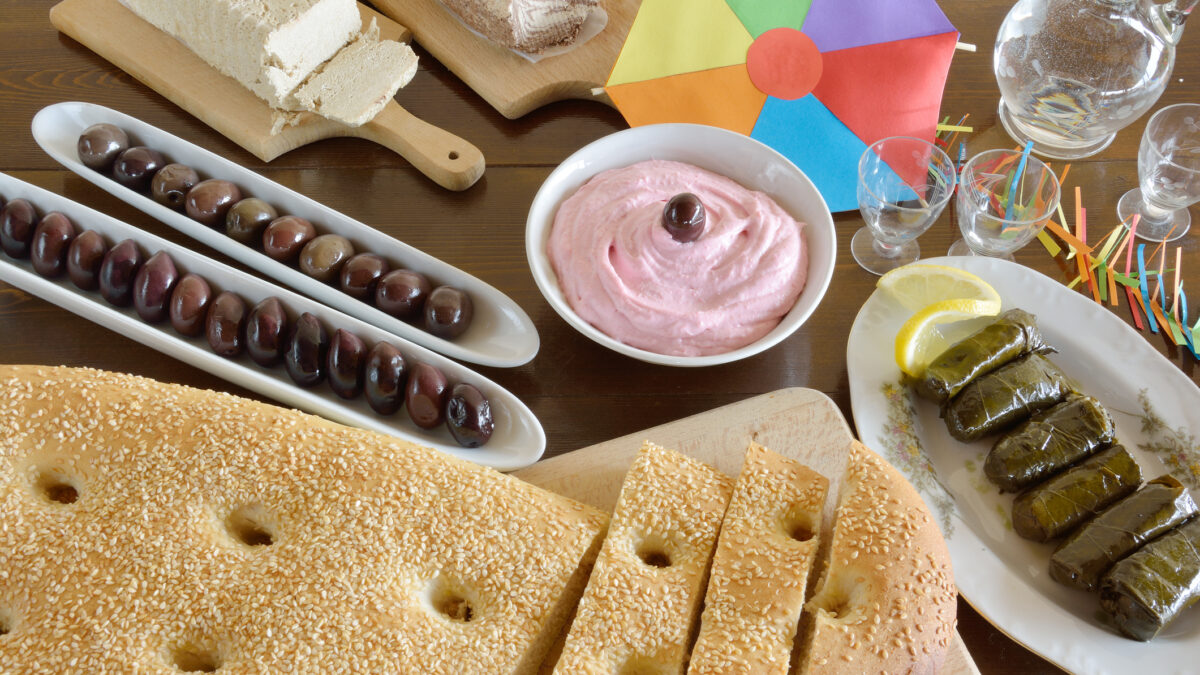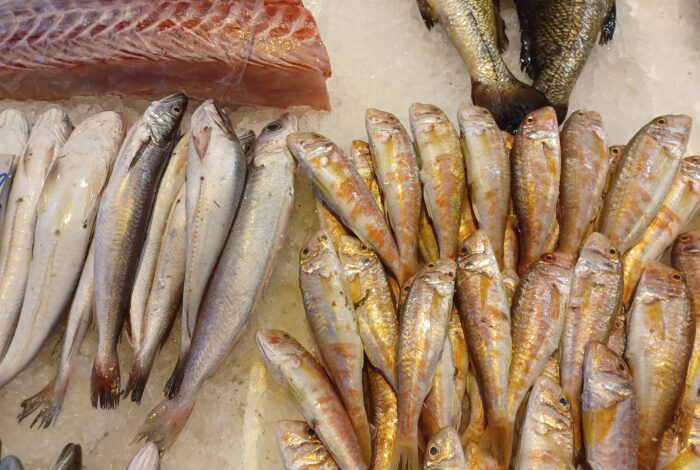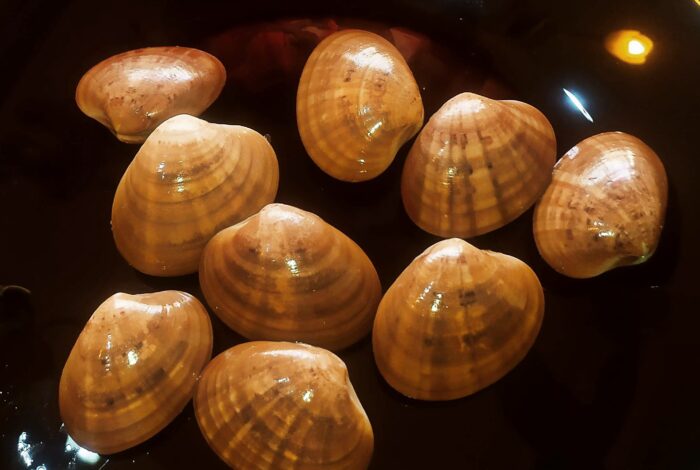Clean Monday is a movable feast that depends on the date of Easter, which is also not fixed. It typically falls at the beginning of the 7th week of the year, that is, 48 days before Orthodox Easter.
Clean Monday is so named because on this day, the faithful cleanse themselves, body and soul. Throughout Greece, the day is celebrated with large open-air events; it signifies the end of the Carnival and the first day of Great Lent, the most important period of fasting in the Orthodox Church, which lasts until Easter Sunday.
If there is one aspect of Greek feasts that remains unchanged, that would be the well-laden tables. The only difference here is that the dishes are Lenten and conventional bread is replaced by lagana, an unleavened bread without yeast or other leavening agents, which is specially made to be consumed on this day.
Greek Lenten cuisine features many tasty main ingredients, prepared in such innovative ways that the dishes remain popular throughout the year.
The foods served on this day fall primarily under the meze category and are easily packaged for a picnic.
Typically, specific types of seafood are eaten. Fresh shellfish are the top choice: mussels, clams, razor clams, and sea urchins are staples for the true connoisseurs. The day features Lenten recipes with octopus, squid, cuttlefish or grilled or fried shrimp, served with pasta or vegetables, cooked in every imaginable way.
And there is no better accompaniment to lagana bread than traditional taramas, a Lenten spread made from salted fish roe, bread or boiled potato, oil and lemon. It is never absent from Greek restaurant menus on Clean Monday.
The festive table is rounded out by boiled or roasted legumes, platters of pickled vegetables, olives, seasonal salads and, of course, ouzo and tsipouro, which wash down everything exceptionally well.
The day’s traditional sweet is the classic halva with tahini, the Lenten dessert par excellence, which is purchased ready-made and enjoyed throughout the fasting period.
In Greece, gatherings around a festive table on days like this are an ideal occasion for revelry and dancing. It is a unique experience, one that can only be truly described by those who have lived it.










